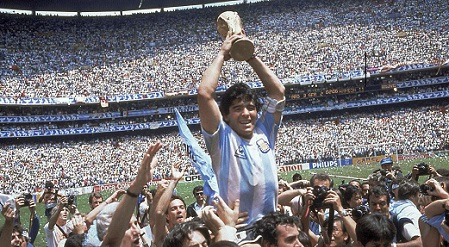The world, more so Argentina, is struggling to come to terms with the sudden death of soccer legend Diego Maradona. Now comes the news that his personal doctor is subjected to investigation if there was “neglect” which led to the mercurial star’s death.
Investigating agencies seized medical records, cellphones and computers from the home and office of neurosurgeon Leopoldo Luque in Buenos Aires on Sunday, as persecutors termed the move “necessary” after interviewing Maradona’s relative.
Maradona’s lawyer Matias Morla had pleaded for investigation, claiming the soccer star was neglected by his medical staff in his final hours, on Thursday.
“It is inexplicable that for 12 hours my friend has not had attention or control from the health personnel,” Morla wrote on social media. “The ambulance took more than half an hour to arrive, which was a criminal idiocy.”
Prosecutors contend that it took 12 minutes for the ambulance to arrive.
Luque denied any responsibility for Maradona’s death.
“If I am responsible of something, it is of loving him and taking care of him, extending his life and improving it until the end,” Luque said. “I am not responsible for this.”
“Diego needed help. Diego was hard. Diego kicked me out of his house and then called me again. That was the relationship, the one of a rebellious father with a son,” said Luque.
The prosecutor in charge of the case, John Brovad, had initially said that the evidence showed no signs of violence and indicated natural causes.
Maradona had a history of health issues. He was diagnosed with a heart ailment in 2000, a heart attack in 2004 and underwent multiple surgeries. His weight, at one time, had blown to nearly 300 pounds from 150.
He underwent a surgery last year to address the bleeding in his stomach caused by hernia.
He was admitted to a clinic with anemia and dehydration, three days after celebrating his 60th birthday this month. Next day, he underwent emergency brain surgery for possible bleeding on his brain, linked to a subdural hematoma, or blood clot, in his brain.
The mercurial Barcelona and Naples star died last Wednesday after suffering a heart attack at his home.
Maradona’s death brought Argentina to a standstill. Three day sof national mourning was announced. Tens of thousands of grieving supporters filed past his coffin as his body lay in state in the presidential palace.
“You took us to the top of the world. You made us immensely happy. You were the greatest of all,” said president Alberto Fernandez.
Indeed, in 2000, Maradona was named along with Pele the co-winner of the FIFA Player of the Century award.
The man who rose from extreme poverty on the outskirts of Buenos Aires to a World Cup title win in 1986 was a hero to millions of soccer fans around the world. His death had the internet flooded with tributes. Soccer and rugby teams from Europe to New Zealand honoured the sporting legend before their weekened matches.
But alongside his soccer genius, along with those soaring free kicks, unbeatable dribbling and lethal left foot, Maradona struggled with addiction to alcohol and cocaine, paternity suits and accusations of domestic violence, charges he denied.


